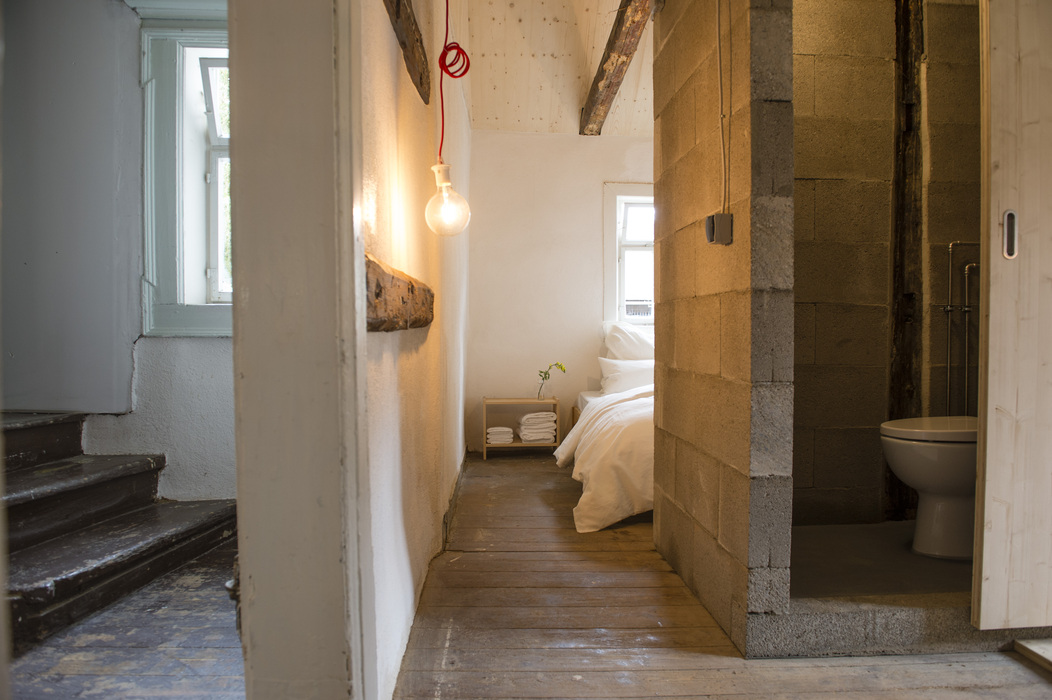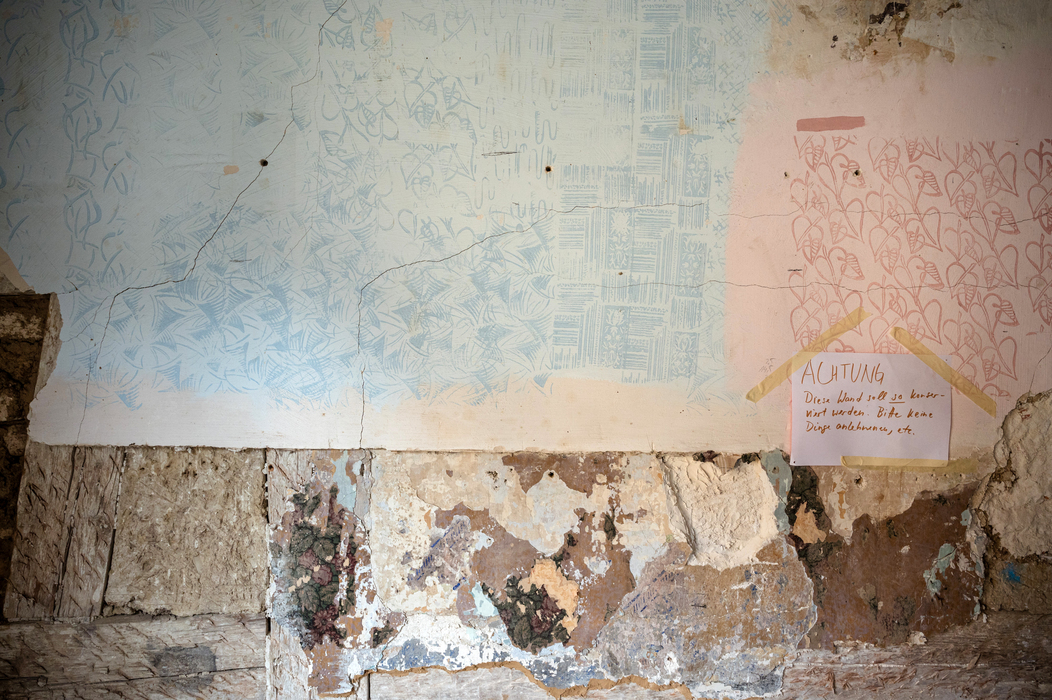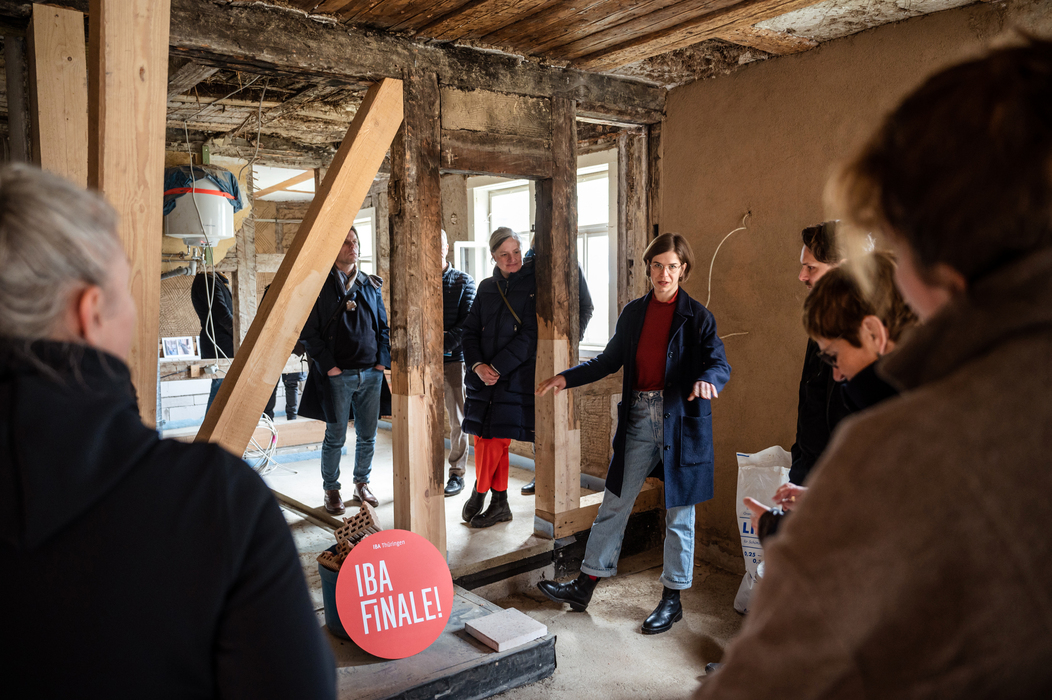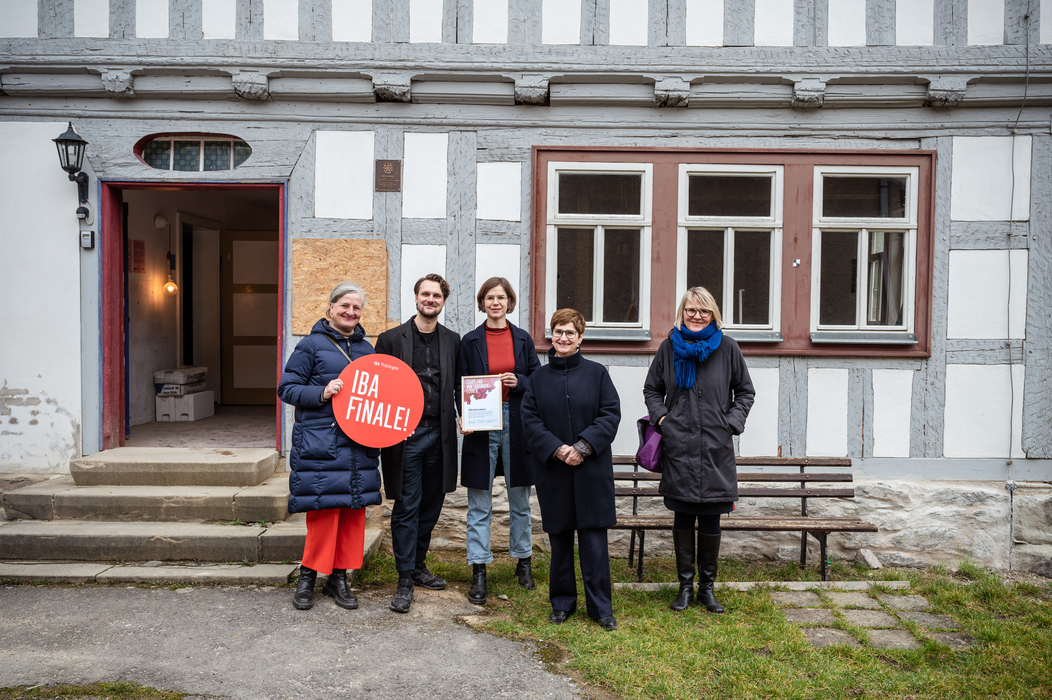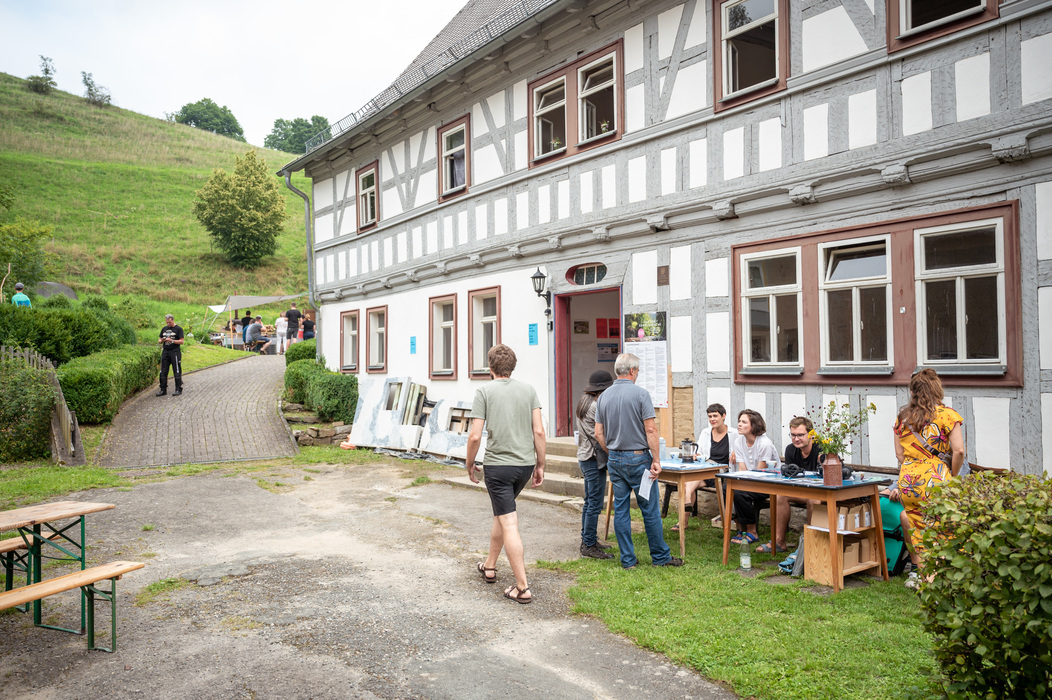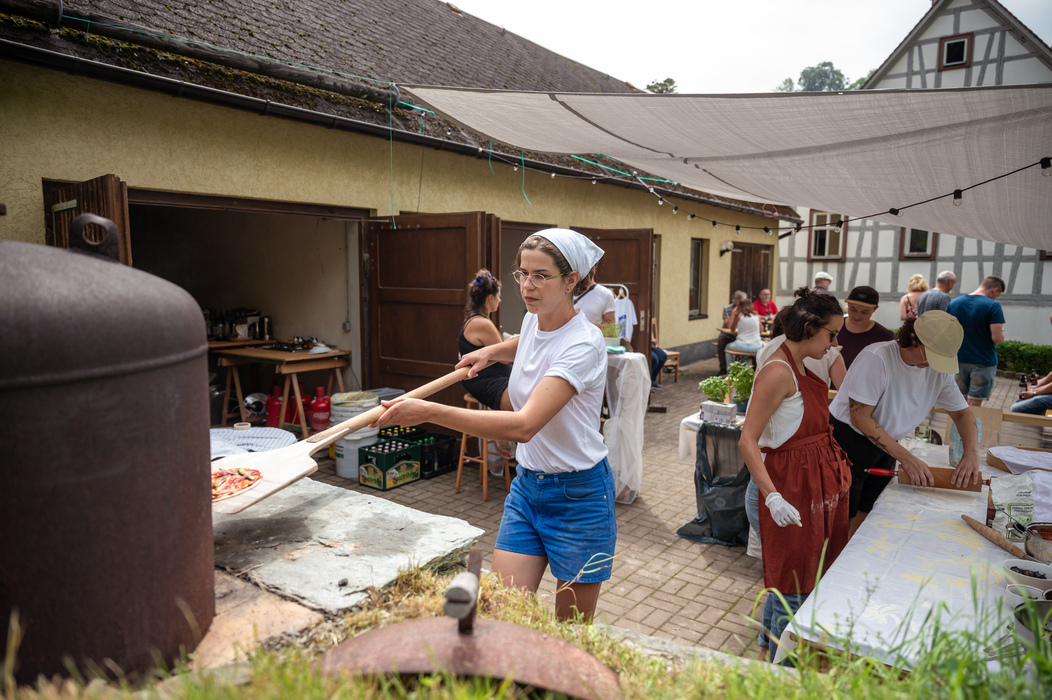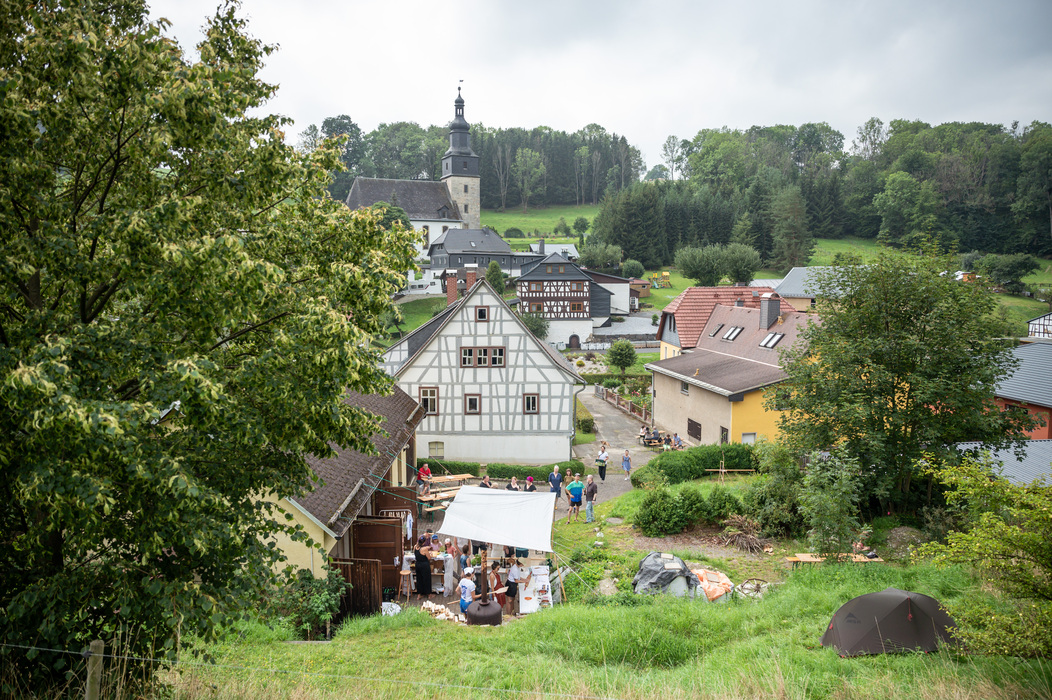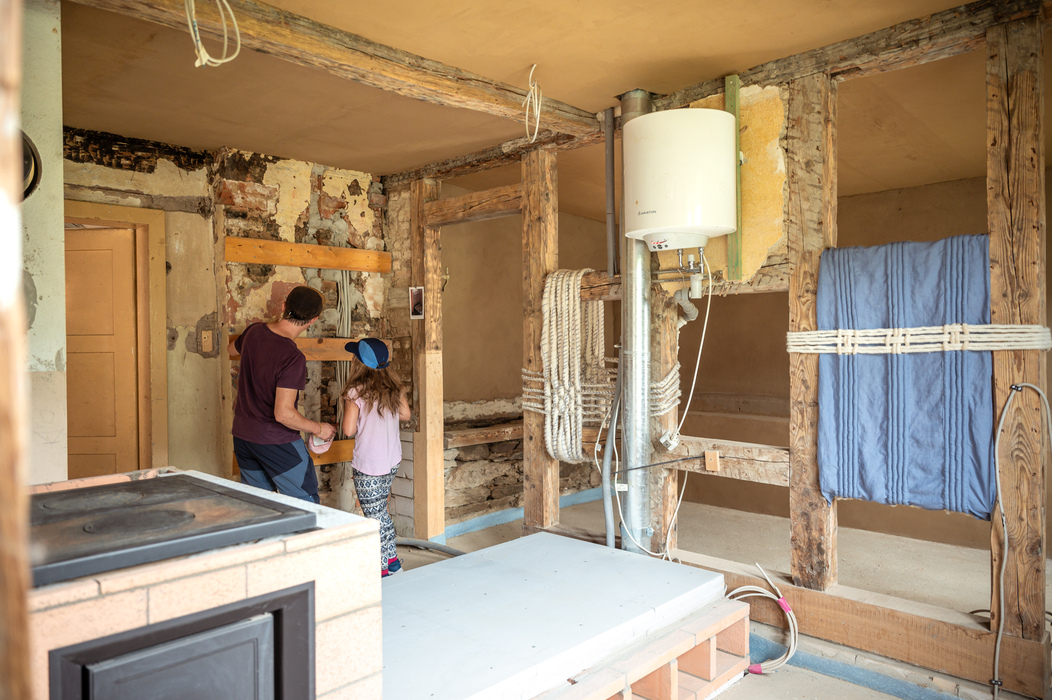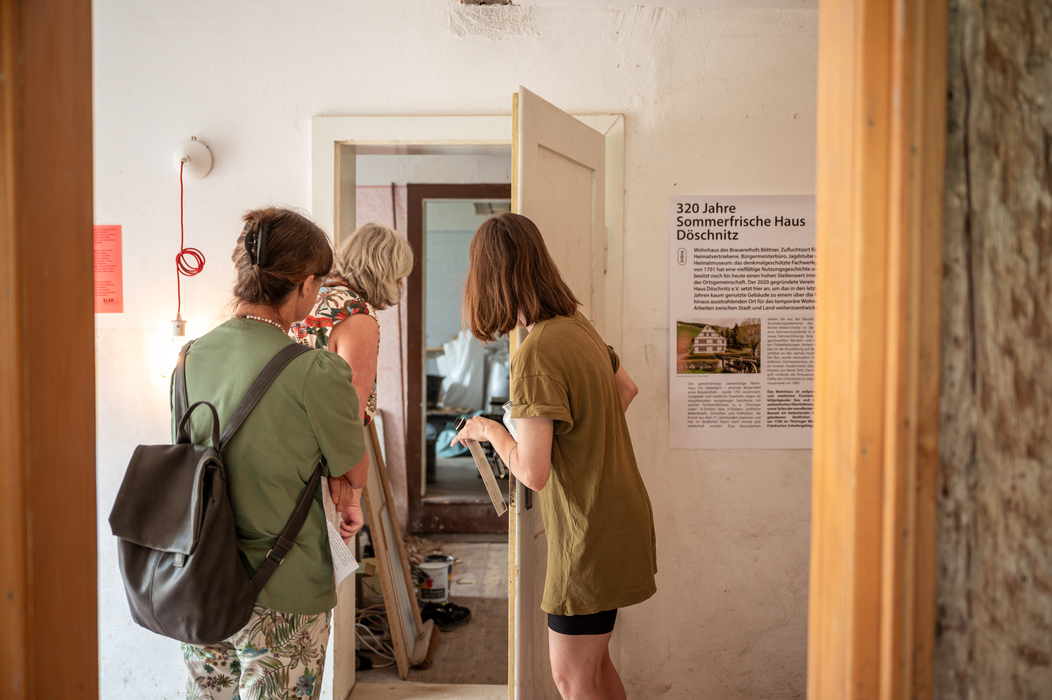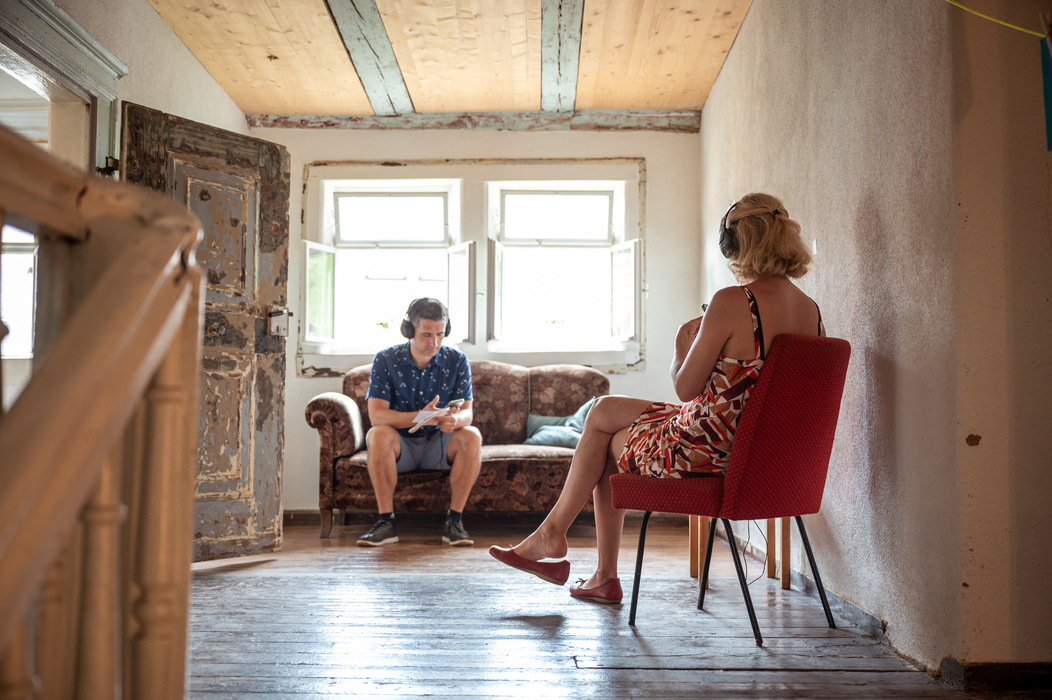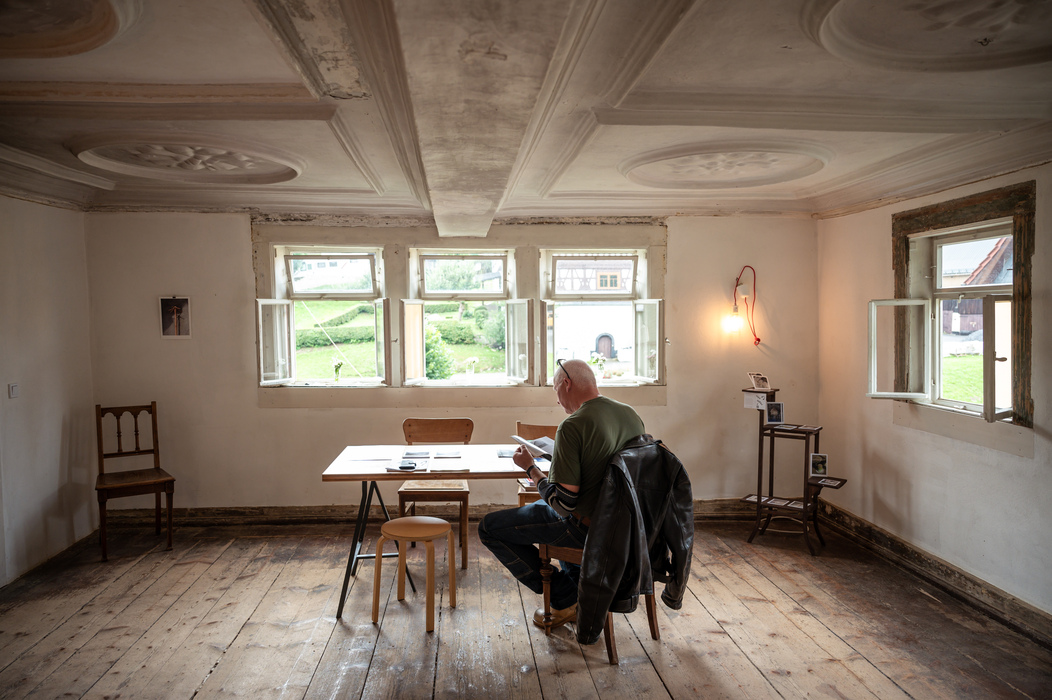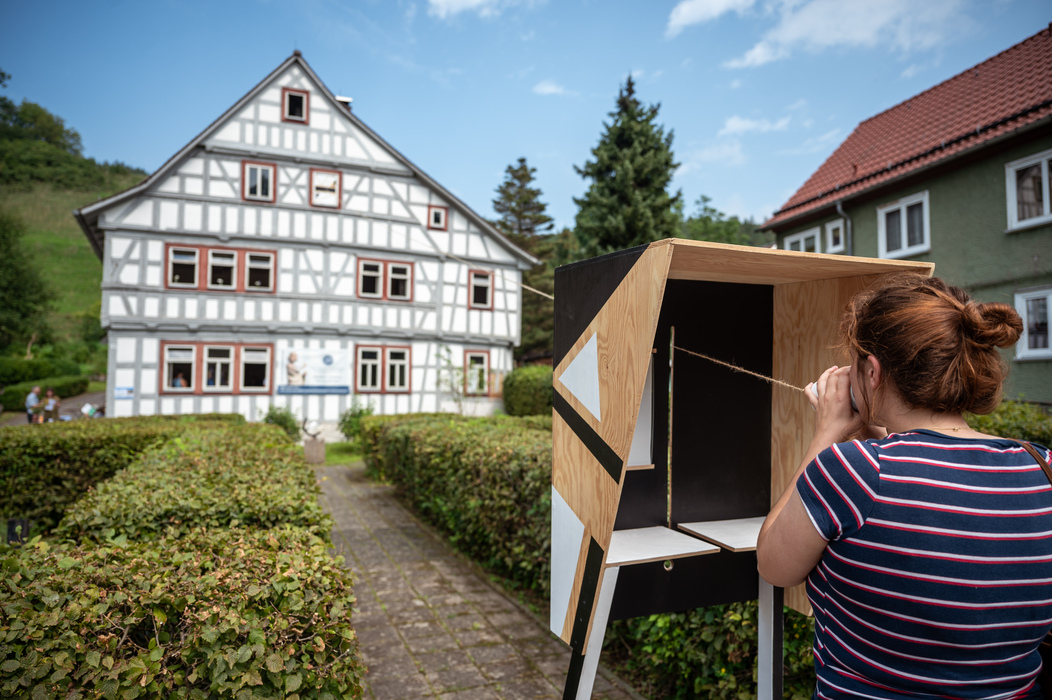Sommerfrische Haus Döschnitz
⸺ Future away from the metropolises
Parts of the rural areas in Thuringia are heavily affected by a declining population. Yet, people, especially from major cities, are actively seeking new temporary living and working spaces here. The Schwarzatal, with its historic architecture and characteristic landscapes, holds significant potential for this purpose.
Nestled in a side valley of the Schwarza River stands the Haus Döschnitz, built around 1700. Once the residence of the Böttner brewery family, it later served as a refuge for refugees and displaced persons, as the seat of the local spa administration, or most recently, as the mayor's office and local museum. (Haus Döschnitz e.V. website)
In 2018, parts of the half-timbered building were opened for a season as a trial living space, subsequently designated an IBA project. The careful and cost-effective renovation of a vacation apartment on the upper floor, considering the historical structure, serves as a model for dealing with existing buildings and vacancies in the region.
Following this interim use, the Haus Döschnitz e.V. association was established in 2020. Since then, it has been developing the heritage site as a future hub away from the metropolitan areas: a community space radiating beyond the region, catering to groups for temporary living and working experiences between urban and rural settings. Additionally, it's a place that opens its doors to the local community, fostering societal and democratic interactions through recurring programmatic initiatives. This association's efforts intentionally align with the activities and objectives of initiatives such as the 'Resilient Region Schwarzatal,' also supported by IBA Thuringia, among others.
Through a regional mindset and approach, the association combines the ecologically conscious and resource-efficient renovation of the listed building with new forms of cooperative living. Shared values, spatial qualities, and the diversity of local resources are being rediscovered and interconnected directly from the region. Over the past two years, this approach has resulted in various usage and construction formats. For instance, in 2022, collaborations with the Natural Building Lab of the Technical University of Berlin and the Department of Heritage Conservation of the Brandenburg University of Technology Cottbus-Senftenberg enabled exploration, experimentation, and construction using sustainable materials and local resources through university summer school programs and workshops.
This close collaboration between local and external contributions is leading to the development, by summer 2023, of a new communal kitchen with a dining area, sanitary facilities, and a sustainable heating concept. Additionally, architecture students from the Technical University of Berlin have crafted initial designs for a 'Shelter': a simple guest accommodation that is intended to be a prototype of a circular construction on-site in the coming years.
Haus Döschnitz, much like Haus Bräutigam in Schwarzburg, transitioned into the special assets of StadtLand Thüringen in 2020. Consequently, the historic building remains under the association's leasehold while the property is owned by the trias Foundation, removed from the real estate market for an initial period of 99 years. The non-profit association Haus Döschnitz operates across interdisciplinary fields including architecture, heritage conservation, urban studies, as well as art and cultural sciences, with a total of 25 members from Berlin, Leipzig, and Weimar. Collaborating closely with the local community, especially the local fair and village association, numerous events have been organized over the past years, such as the 'Summer Retreat Day' and a temporary open-air cinema, promoting everyday interactions and communal well-being in the municipality and the region.
Orte
Projekt sponsor
Cooperation partner
Financial support
- LEADER, Europäische Union, Freistaat Thüringen, LEADER Aktionsgruppe Saalfeld-Rudolstadt e.V.
- Deutsche Stiftung Denkmalschutz
- Thüringer Ministerium für Infrastruktur und Landwirtschaft
- Internationale Bauausstellung Thüringen GmbH
- Architecture, construction and supervision: Architekturbüro studio etcetera, Berlin, MATA Architekten, Berlin, Jens Casper, Berlin
- Trial living 2017/18: Architekturbüro Mentrup, Kahla, kulturräume gestalten, Schlehdorf/Oberbayern

